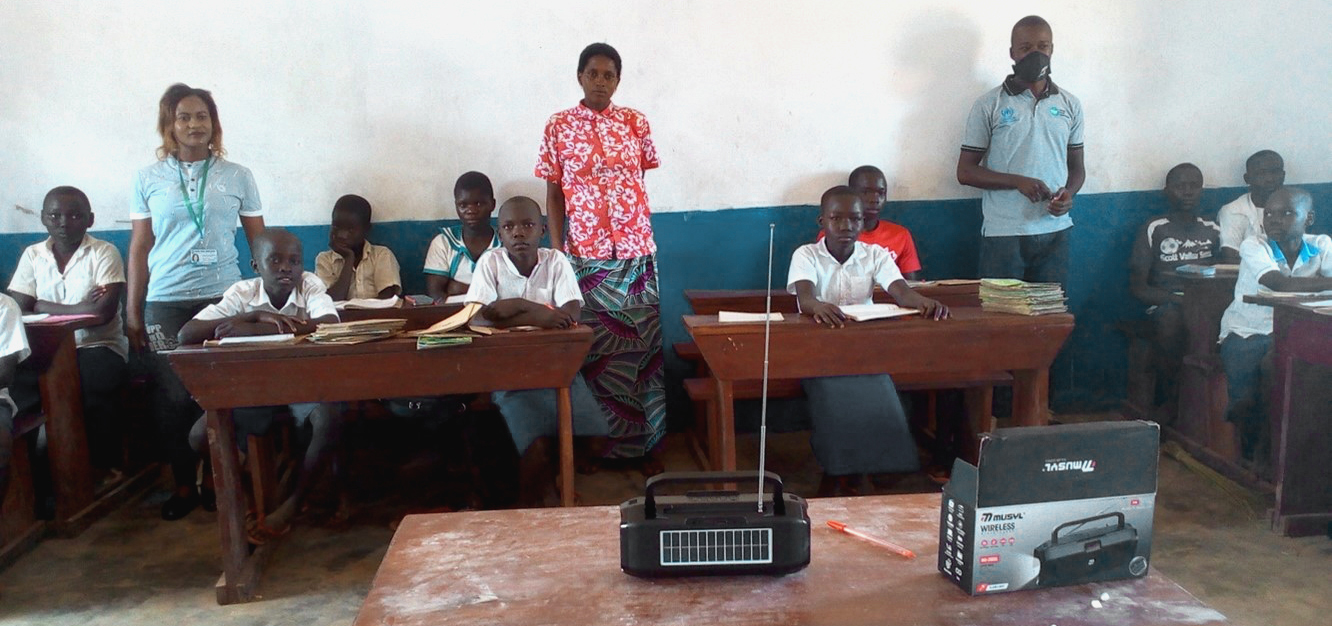


Educational support for refugee children
In a context of crisis, be it armed conflict or a pandemic like the one currently sweeping the planet, one thing is certain: Education Cannot Wait.
UNICEF established ECW to help reposition education as a priority on the humanitarian agenda, and TSF joined the movement, seeking support from the fund for a project benefiting children in the Democratic Republic of the Congo (DRC), many of them refugees.
The effect of COVID-19 on education has been brutal in the DRC. “School closures have slowed the pace of learning, and the halt of economic activities has affected parents, who play an important role in their children’s education. We also noted an increase in child abuse and exploitation, and in pregnancies among teenage girls,” explained Brother Mbolihinie, CEO of the Jean-Marie de la Mennais school complex.
So, in the past year, TSF has provided educational support to more than 10,000 children, approximately half of whom are refugees, in the Meri, Bele, Gbadolite, Yakoma and Bondo regions. Our main goal was to help the students perform better in school. To reach children living in remote regions, traditional teaching methods were adapted to create alternatives suitable for digital platforms and radio broadcasts.
“Not every school subject is covered; the aim is not to replace the national teaching program or lead the children to graduation,” says Brother Mbolihinie. “The purpose of the program is to teach core subjects like languages and mathematics, which make it easier to understand or assimilate other lessons,” he explains.
With this new approach, the Brothers of Christian Instruction, TSF’s partners in charge of developing teaching material for the project, have had to make adjustments, by breaking lessons down into smaller parts to make them appealing and engaging for children, for example.
“Radio lessons allow children to listen to teachers they wouldn’t normally see in the classroom,” emphasizes Dukabho Tabhiaki, a teacher at the primary school in Mola. “A child in sixth grade can listen to grade two lessons as a refresher, or a student in third grade can get a head start on more advanced classes. It’s beneficial for them.”
Monitoring committees have also been created in targeted schools, and parents have received training on how to supervise and guide their children.
“It’s very important that project facilitators encourage parents to allow their children to listen to these radio lessons at home,” insists Angélique Aputu, the principal at Mola’s primary school and leader of its monitoring committee.
To facilitate hygiene and COVID-19 prevention, blocks of latrines and water sources were also built.